DOG TRAINING OFFERED IN-PERSON AND ONLINEOur dog training services are delivered in almost any format that meets your needs. We have GROUP CLASSES at our indoor and outdoor facilities on our farm, ONLINE LIVE STREAMING classes, and SELF-PACED VIDEO-BASED training through our Online Dog Training Course. Our PRIVATE TRAININGS can be done in-home, outside, in public dog-friendly locations, at our facility on our farm, online via phone or video conferencing and through email. |
While flying is certainly an option for bringing a puppy home from a breeder, we opt to drive if possible, even if it is cross-country.
We have found that driving is a great way to connect with our new puppy without the distractions of the normal routine and a home environment. And it is important to establish that connection quickly because it is stressful on a new puppy when they are leaving the comforts of their home and siblings. By being there for them and in continuous contact the first few days, that helps cement their relationship and comfort level with you.
To make the trip successful, here are car travel tips when picking up a puppy from a breeder.
Supplies needed:
- Crate with extra bedding should they potty inside it and you need to switch it out;
- Blankets and dog coat if it is during winter;
- Variety of different toys and bully sticks/chews to help keep them occupied;
- Baby wipes;
- Enzymatic cleaner;
- Paper towels;
- Ex-pen or two;
- Tarp and/or cheap disposable table cloths that can be thrown out;
- Food, treats and plenty of water;
- Water and food bowls;
- Vehicle with good environmental control (air conditioning for summer and humid days and good heat in the winter);
- Flashlight, preferably a headlamp;
- Potty bags;
- Natural de-worming supplements, as it is normal for puppies to have or pick up worms.
Protocols we follow:
- When you pick them up, ask the breeder to wear them out with plenty of play and activity beforehand. That will make the first few hours of the travel home easier.
- Plan to spend some time with the breeder so the pup can get to know you a bit before driving away with them.
- Make sure you have a properly fitted collar or harness so they cannot accidentally escape when making your stops, especially if something frightens them.
- We plan for a max of about six hours driving time per day.
- We use travel crates for our dogs when riding in our vehicles. We secure them behind the drivers seats in the middle of our van. If dogs are in the back of the vehicle and you get rear-ended, there is greater risk of dogs being harmed.
- Not everyone can fit travel crates in their vehicles, so a second option would be a harness that connects into the seat belt in the back seat of your vehicle.
- Dogs should never ride in the front seat of your vehicle. Especially not on the driver's lap but also not in the passenger seat. If you are in an accident and your air bags go off, your pup could be seriously injured. And they can easily become a distraction from your driving in the front seat.
- Stop at least every couple of hours for potty breaks and breaks for play and exploration. Exercise, both physical through play and mental through exploration and sniffing, helps wear them out for car time.
- If it's a long drive, also plan to stop for meals and give time to digest before driving again.
- Avoid the usual spots in rest areas, gas stations and hotels if you can where everyone else stops with their dogs. Puppy immune systems are still developing so the less exposure the better.
- Use baby wipes to wipe their feet before loading up again, especially if you cannot avoid areas where other dogs frequent.
- Map out dog-friendly places to stay if your trip is more than one day. We set up their bedding inside ex-pens, typically in the entry and bathroom areas of the hotel room. Use tarps and/or table cloths as the first layer, with a sheet on top and their bedding with their toys and chew sticks.
- Ask for a first floor room with quick access to the outside so you can take them out to potty as quickly as possible.
- When you have to get them out in the dark, use the headlamp and always have potty bags on you to pick up after your puppy.
- We plan to relax and not do any driving after dinner. After dinner, go to a local park or open space where you can do more exploring with your puppy. This will help wear them out for the night to minimize any crying/barking.
- If you notice worms in stools or vomit, add de-worming supplements to their food to get under control.
- Carry enough food along to feed meals but be careful not to feed and then drive right away to help prevent car sickness.
Our goal is to positively impact the lives of as many dogs and their families as we can, in part through our extensive library of video, infographics and text articles. |
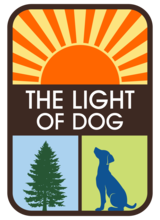
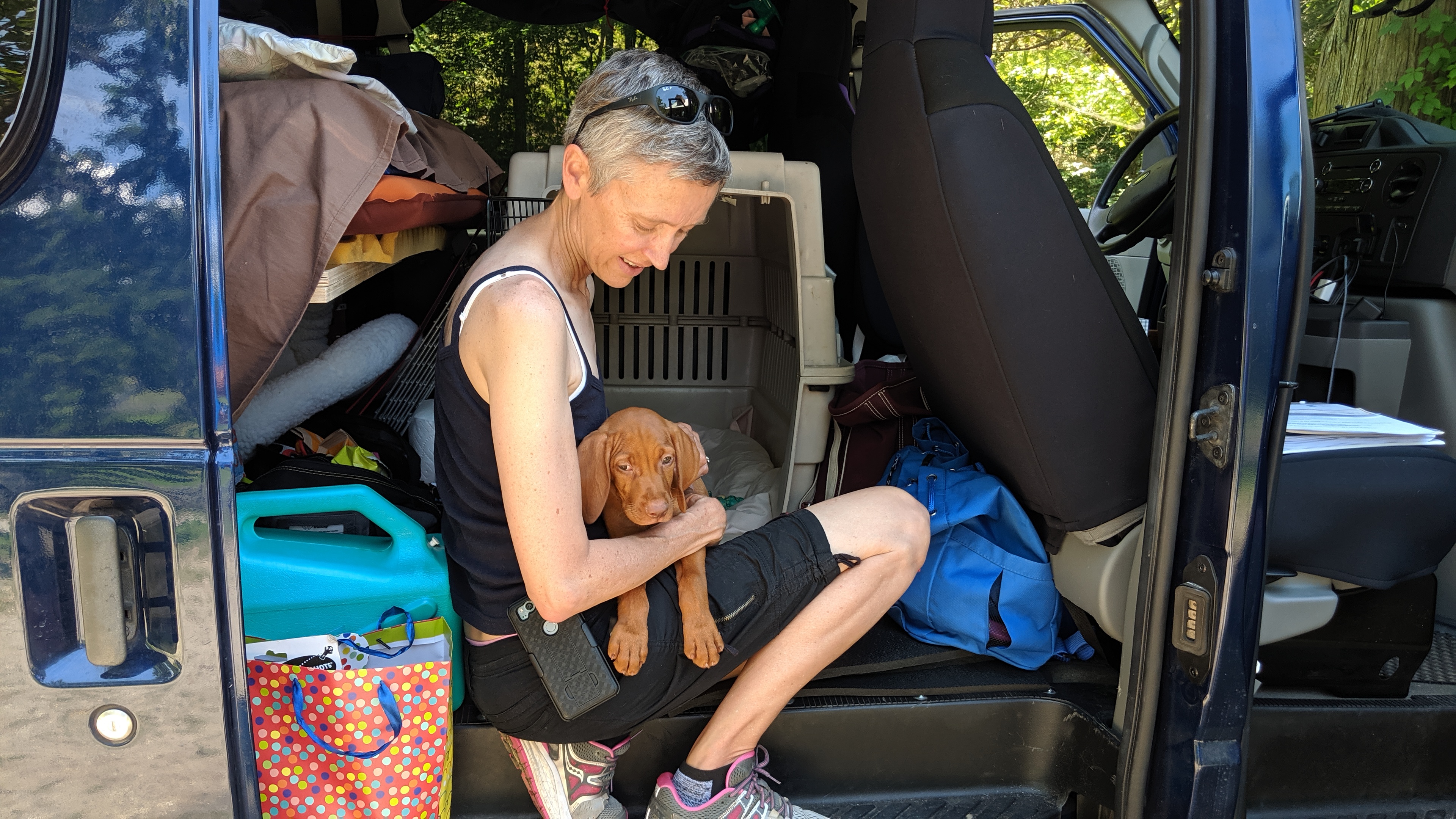
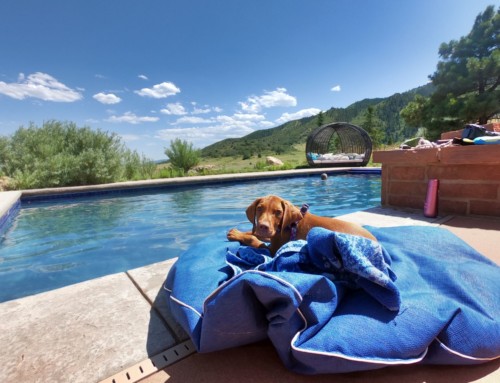
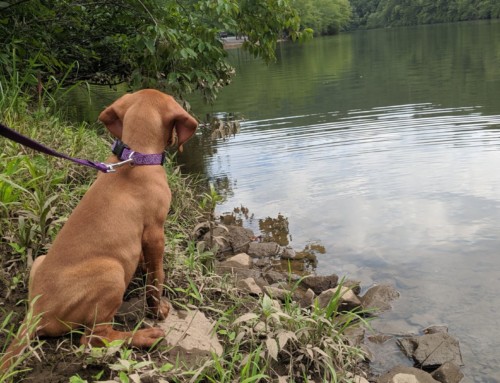
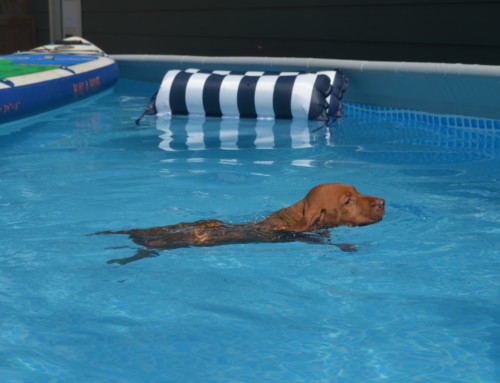
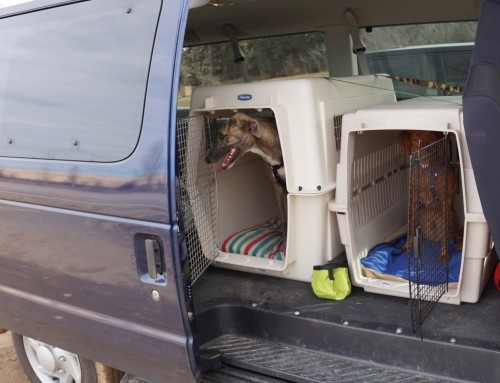




Leave A Comment